In recent years an increasing number of doctors have published medical memoirs and non-fiction books. David Lynch charts this phenomenon in interviews with national and international writers
You may have noticed the ‘medical memoir’ sections have recently sprung-up in bookstores across the country. While there have always been doctors who were also writers, over the last decade very high-profile doctor-writers such as Dr Atul Gawande, Dr Danielle Ofri and Dr Adam Kay have won a large readership.
They include a number of our very own Medical Independent (MI) columnists, such as Prof Seamus O’Mahony (Can Medicine Be Cured?); Dr Brendan Kelly (The Doctor Who Sat for a Year); and Dr Lucia Gannon (All in a Doctor’s Day).
Dr Brian Goldman has worked as an emergency physician at Sinai Health System in Toronto, Canada, for more than 20 years and he has also found time to be the author of three best-selling books.
His latest, The Power of Kindness: Why Empathy is Essential in Everyday Life is his personal and professional search for empathy in healthcare.
Considering his own success with the printed word, what would Dr Goldman’s advice be for a doctor who was thinking of having a go at writing?
“Can I give you two bits of advice? The first is that writing a book is difficult for new writers to contemplate,” Dr Goldman told MI.
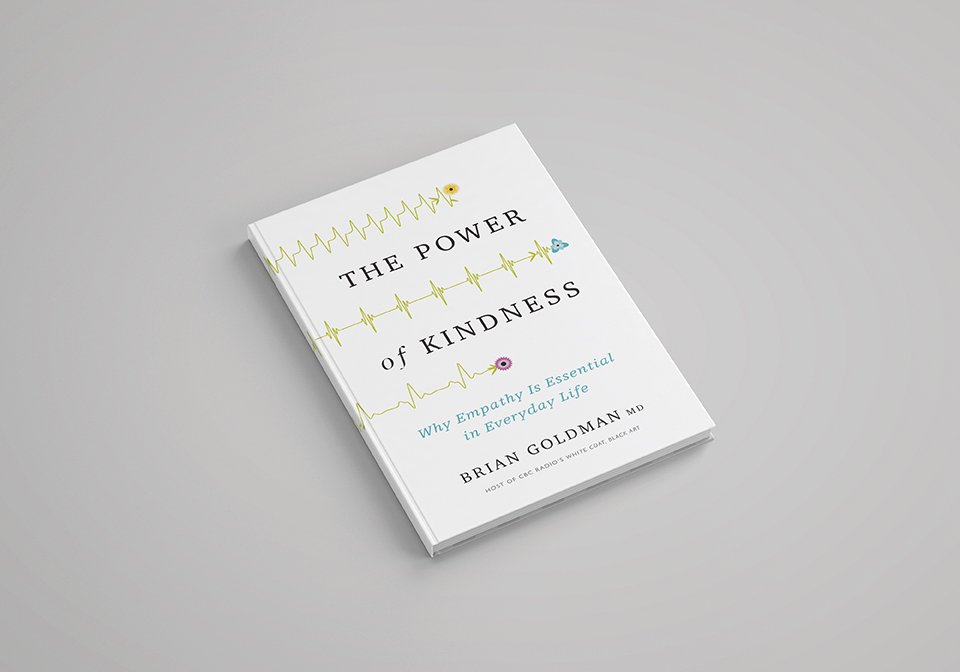
“Manage your anxiety about book-writing by planning what you want to write about and chunking it out into smaller bits.
“The second piece of advice is to remember that writers write for a living. You get up every day and write something. Get into the discipline of writing, whether you are in the mood or not, and you’ll become a writer.”
Although that advice can be applicable to both medics and non-medics, Dr Goldman also has some thoughts on how being a doctor can help, and perhaps hinder, the writing process.
Discipline
Dr Goldman said that practising medicine has “both catalysed and accelerated the writing process for me”.
“The discipline of medicine fired-up my curiosity brain circuits. That constant need to figure out why things go the way they do in medicine — from diagnosis to treatment — has served my writing career by developing my curiosity as to the motivations of the people I write about.
“In my book [The Power of Kindness: Why Empathy is Essential in Everyday Life], I had to figure out why the people I wrote about were so empathic towards others. I could not have done that without my medical training.”
Dr Goldman, who spoke at the recent dotMD conference in Galway, said that being a doctor has helped him get his foot in the door of the world of publishing.
“There’s no doubt that my medical credentials gave me instant credibility with publishers and broadcasters,” he said.
“As I fashioned myself as a writer who ‘pulled back the curtain’ on the world of medicine, it would have been much more difficult to do so had I not been a physician.”
The Canadian doctor also notes that another comparison is that “medicine and writing both require hard work, research and discipline”.
“But there are distinct differences between the two,” he continued.
“Through training and culture, doctors tend to focus on the clinical signs and symptoms of disease and gloss over the emotional experience of patients.
“Doctors know that emotions are there, but often treat them as annoying hindrances to the work of medicine.
“By contrast, writers gravitate towards the emotional experiences of subjects, and use that to engage readers and to deepen the reader’s experience.”
He also notes that another “big contrast” between medicine and writing is that “medicine has a compulsion to keep secrets. Inherent in writing is the compulsion to tell secrets”.
Stories
Irish doctors are also very much part of this publishing trend. GP Dr Liam Farrell, whose collection Are You the F***ing Doctor? was recently published, is one of this growing group. Dr Farrell is well known for his columns in the medical press over recent decades.
“First of all, medical training is quite restrictive and vocational,” Dr Farrell told MI when talking about the interaction between medicine and writing.
“When I was young, English would have been my best subject, but all through medical school and medical training I didn’t write at all. There was almost no incentive at all for that type of reflective observation.
“Medicine does tend to flog that type of skill out of you. But after that, we have access to patients, and every patient who comes in is a little life story in their own way. A million stories; they can be funny, tragic — you just don’t know what is going to come through the door. Writing about it does help put those things into perspective.
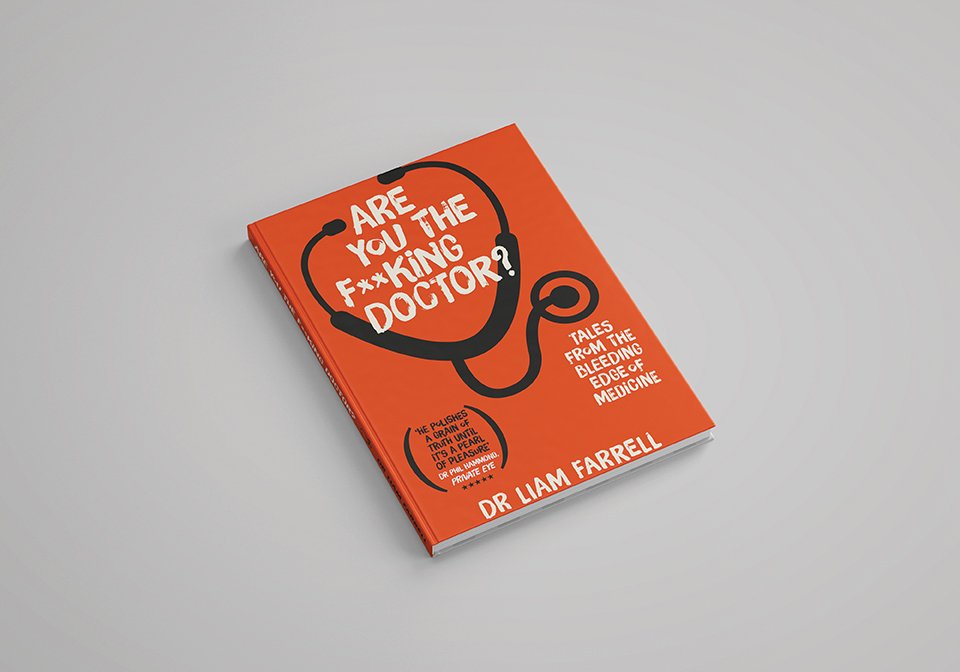
“Medical writing can put a humanity into the people that we meet and see and bring them alive. Patients aren’t just patients; ‘patient’ is too small a word, because every patient has a life outside being sick… I think medical writing can help restore that humanity that sometimes can get lost in the relentless advance of scientific medicine.
“I’m not knocking scientific medicine at all. The advance of scientific medicine is amazing and is to be celebrated, but I do think it can come at a certain cost.”
Regarding the recent glut of medical memoir books on the market, Dr Farrell said he’s “not sure if there is a general movement” and points to the long tradition of writing among doctors.
“It may also be a fashion in the publishing world. Adam Kay’s book [This is Going to Hurt] was obviously very successful, so that may have kick-started publishers’ interest in it, where previously, publishers had maybe ignored medical memoirs.”
In terms of tips garnered from his own writing routine, he said “over the years I kept a scrapbook of interesting things I’d read or patients I’d seen. So I always had a sort of reservoir of material to lapse back into and look over and try and connect something between one piece of information I read and a patient I’d seen.
“I think every doctor, every writer has to find their own pattern, whatever suits them. But I do think most serious writers are quite consistent about it.
“With writing, the hardest thing is getting the words down.”
Writers
Some Irish doctors who have recently published are also avid readers of the international doctor-writers.
“I was unable to finish Adam Kay’s This is Going to Hurt, as I found the writing so evocative of my own junior doctor days and realised that I had probably not fully laid to rest the ghosts of those days,” GP, MI columnist and author of the recent All in a Doctor’s Day: Memoirs of an Irish Country Practice Dr Lucia Gannon (see sidebar) told this newspaper.
“I had thought that the terms and conditions had improved significantly for junior doctors but realised reading this book that that was not the case.”
Dr Gannon added that she also garnered a lot of insight into medically-unexplained symptoms from reading Dr Suzanne O Sullivan’s It’s All in Your Head.
“Whether we are doctors or patients, or both, we can all fall into the trap of only seeing things from our own perspective,” Dr Gannon said.
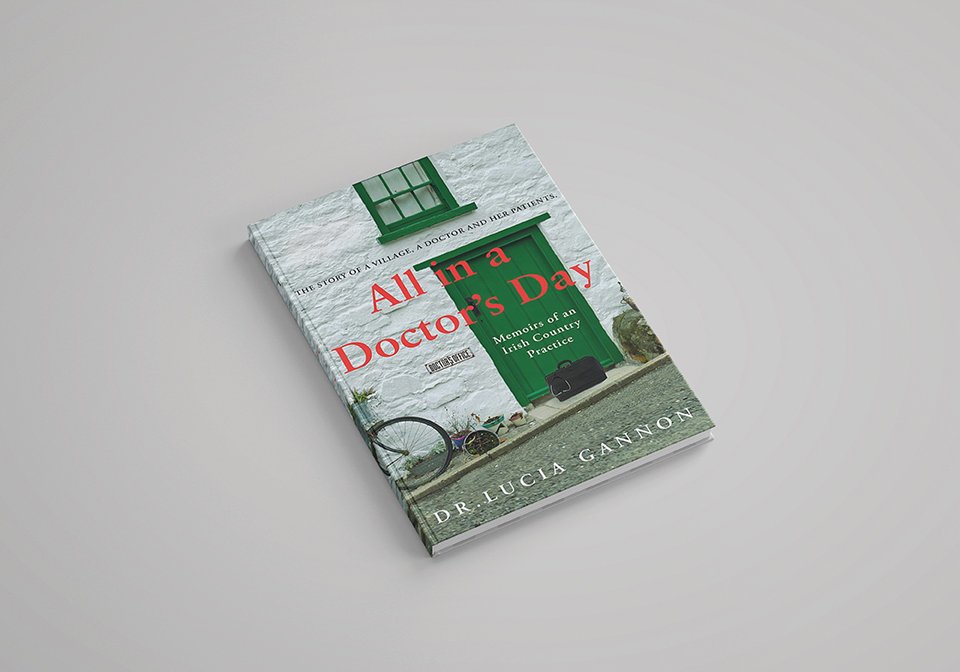
“By writing about their experiences, doctors are simply helping others see their perspective and this can only improve healthcare for all. I think doctors are realising that they can reach a greater audience by writing non-medical books and that they can write much more than prescriptions and referral letters and that this adds another dimension to the delivery of healthcare.
“I am a big fan of Oliver Sacks, Irvin D Yalom and Susie Orbach’s patients’ stories and so I knew it could be done while maintaining confidentially, but still capturing the essence of the dilemmas presented and the lessons learned by the doctor.
“Writing about our experiences also reminds us of why we chose this profession in the first place and of the good we do on a regular basis so that we do not become overwhelmed by negativity.”
Typing
Doctors who write also have some very practical advice for those who may be thinking of giving it a try.
“Learn to type!” advised Prof Brendan Kelly, Professor of Psychiatry and in Trinity College Dublin, and Consultant Psychiatrist in Tallaght University Dublin, whose most recent book is The Doctor Who Sat for a Year.
Prof Kelly told MI: “Go to typing classes and learn touch-typing. It is the single most important skill for writing.”
Aside from the importance of adding another practical skill, the doctor who turns their hand to writing is in a good position, Prof Kelly insisted.
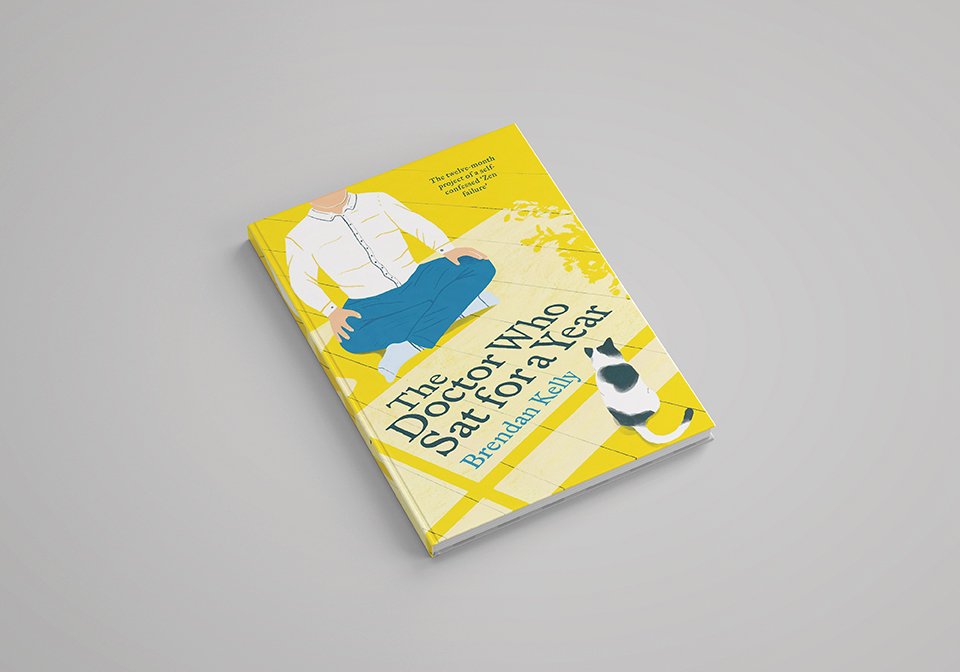
“Being a doctor helps greatly with writing,” he said. “Most doctors are naturally curious about people and we get to meet people at their most vulnerable. We are enormously privileged in that way. This gives doctors a unique insight into human behaviour and plenty to write about.”
Given these working conditions, Prof Kelly is not surprised with the number of doctors who have already published books. “Medicine is so integral to human life, perhaps the more interesting issue is why so few doctors write books,” he said. “Technological changes in medicine in recent decades have — paradoxically — shifted attention back to the core skills of doctoring: People skills and dealing with highly intricate, complex situations with engagement, knowledge and compassion.
“These are things worth writing books about.”
Voice
Prof Luke O’Neill, author of Humanology, told MI that his most important piece of advice to any aspirant medical writer is “make sure your own voice comes through”.
The leading immunologist says there are different genres of books normally written by doctors and thus different styles.
“A book for a general audience will have a very different style compared to other writing you might do as part of your everyday job,” according to Prof O’Neill. “If you like writing, there shouldn’t be any hindrance from being a doctor, and if the book is factual, you can bring your analytical skills to bear.” He thinks that the increase in the number of doctors writing books on medical matters for the general public is meeting a growing need among the population.
“There seems to be an inexhaustible appetite in the general public when it comes to medical matters, so I guess the demand is there. It’s also probably a good way to relieve stress.”
Trauma
So from the international perspective, why does there seem to be a recent, and rapid, increase in medical memoirs and other non-fiction written by doctors?
“I think doctors see so much trauma and wonderment in the patient experience that they need to be able to process it in one way or another,” Dr Goldman said.
“Writing provides a fantastic way to reflect on what we are privileged to witness in our professional lives. I also think that television and social media have popularised self-disclosure to the point that it’s more normal to talk about the work you do than to avoid doing so.”
How a GP becomes an author
MI columnist Dr Lucia Gannon has already received many excellent reviews for her first book, All in a Doctor’s Day: Memoirs of an Irish Country Practice published earlier this year. As a first-time author, what advice would she give to a doctor who wanted to start writing seriously?
“I would advise them to read Anne Lamott’s Bird by Bird,” Dr Gannon told MI.
“This is a short, humorous book on how to write. The most useful thing I ever read about writing comes from the chapter ‘Shitty First Drafts.’ I always got stuck on the first draft, with my inner critic providing a continuous commentary on how awful the writing was until I eventually abandoned it and went off in search of more inspiration or enlightenment.
“Once I realised that even published, famous, financially well-off, experienced writers write ‘bad first drafts’. I gave myself permission to get everything down on the page or screen, knowing that no-one would ever see it and I would be able to re-draft as many times as necessary to make it less cringeworthy. This was a turning point and I wish I had read her book much earlier.”
But with long hours and a stressful job, does being a doctor help or hinder the writing process?
“Being a doctor can do both,” said Dr Gannon.
“It can help because as doctors, we are always communicating ideas and concepts and giving advice and writing is just an extension of this.
“Doctors are always writing — medical notes, referral letters, letters to institutions, so that doctors’ writing ‘muscles’ are almost always primed and ready for action.
“Doctors also have lots of material to write about. All human behaviours and emotions cross our paths every day and make us reflect on life, mortality, and all the main issues of life. But being a doctor can also result in a quieter voice or even silence as we worry about breaching confidentiality, or being complained about to the Medical Council if we expose a vulnerable, uncertain or less-than-perfect side of ourselves.”
In terms of comparisons between medicine and writing, Dr Gannon agreed with other doctors we spoke to saying: “medicine and writing are both hard work”. “They require commitment, organisation, energy and the ability to sit with an uncertain outcome, whether it is advising a patient to wait and see, versus immediate referral to hospital, to putting the first tentative words on a page, wondering if it will ever develop into a fully-formed piece of work.
“Both involve self-awareness, clear communication and a willingness to be vulnerable and to put yourself in other people’s shoes. Some studies indicate that reading fiction makes people more empathic but I think writers of fiction, like method actors, must be among the most empathic people in the world as they are able to convey the thoughts, feelings and behaviours of a wide range of characters — to really feel what it is like to be another person.”
So why does Dr Gannon think there is apparently an increasing number of doctors writing books in recent years?
“I think doctors want to tell their story,” said Dr Gannon.
“I know that was my motivation. I wanted the people I serve to know that while I may not be the most skilful, knowledgeable, or competent doctor in the world, I had always tried to do my best.”
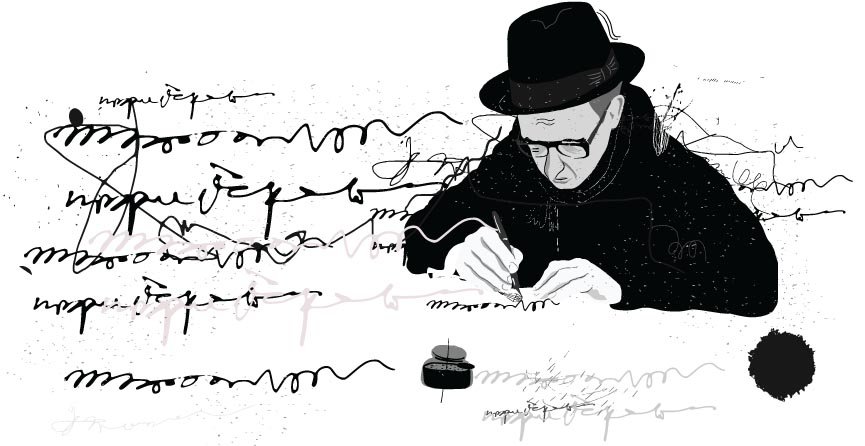











Leave a Reply
You must be logged in to post a comment.